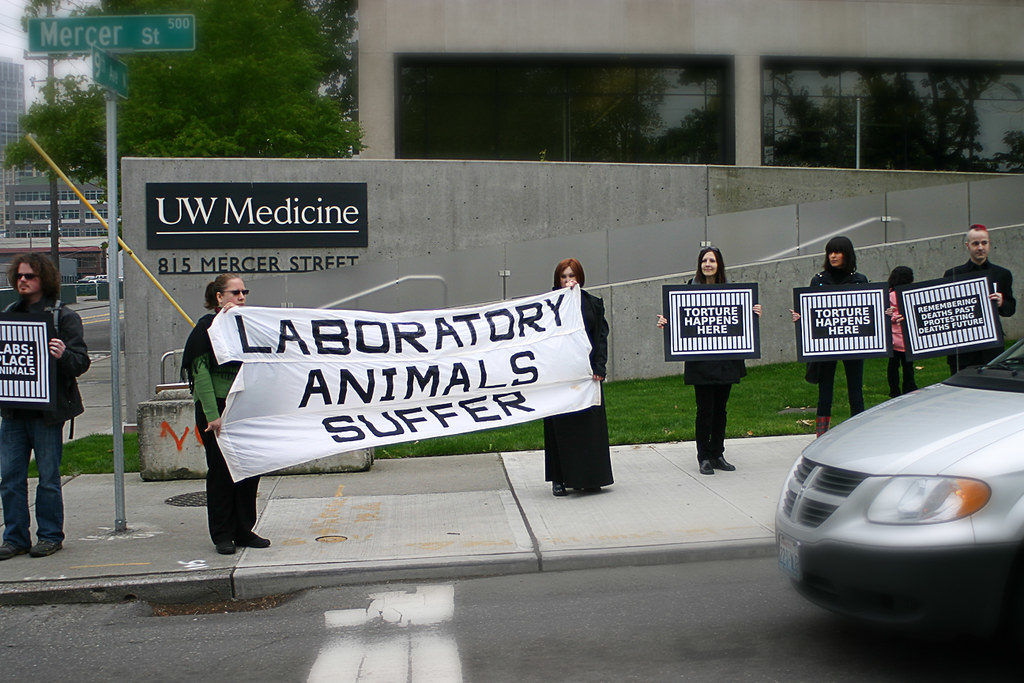Human tissue is critical for advancing scientific research that could help prevent and treat diseases such as cancer, diabetes, and Alzheimer’s disease. By simply registering to become an organ and tissue donor (which in the United States you can often do online through your state’s motor vehicle department), you can help scientists save human lives and reduce and replace animals used in research.

Protesters in front of a lab where animal testing occurs. Donating tissue and organs is one way to encourage scientists to move away from using animals in research. Image credit tifotter, CC BY-SA 3.0.
The Tissue Issue
The use of human tissues in scientific research has improved health care by leading to discoveries in disease progression, drug development, and medical procedures. Organs-on-chips, 3D bioprinting, and other methods that use human tissues instead of animals produce results that better translate to human health.
Human tissue is typically obtained post-mortem from people who are organ donors, as surgery remnants, and via blood or other bodily fluids. But accessibility is often cited as one of the main barriers of using human tissues and cells for scientific advancement.
The Physicians Committee convened The Human Tissue Roundtable to address the issue. The roundtable speakers—scientists, policy experts, physicians, and leaders from United States federal agencies and nongovernmental organizations—covered the full spectrum of human tissue donation, from a transplant surgeon who initiates the cycle of tissue recovery in the operating room to a scientist who uses human cells to study drug development for preclinical trials.
Human Tissue Health Breakthroughs
Scientists have recently used human lung tissue derived from patients affected by chronic obstructive pulmonary disease to discover a method for repairing lung tissue. Researchers have also used human skin cells leftover from surgeries to develop a test that more accurately identifies skin irritants than animal tests. There have also been advancements in brain, heart, vision, and other areas of health research.
—–
Donate Your Tissue
Register to be a tissue donor at OrganDonor.gov, operated by the U.S. government’s Division of Transplantation within the U.S. Department of Health and Human Services, or Donate Life.
The National Disease Research Interchange also accepts tissue from both living and post-mortem donors. Individuals can donate blood, tissue from surgery (such as tumors or diseased organs), or organs after death, including those that cannot be used for transplant.
Once you have registered to be a donor, it is important to talk to your family members about your decision so they will know your wishes.
Featured image: a dog kept for student training at a veterinarian school in Europe. Beagles are commonly used for scientific research because they are small and docile. Image credit Jo-Anne McArthur / We Animals.





